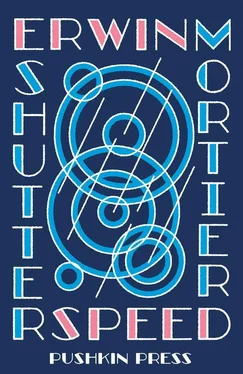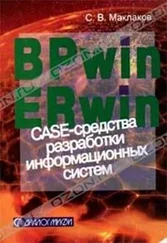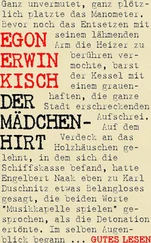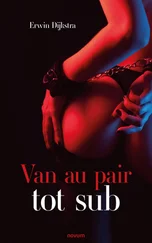In the garden behind the village hall the chairs and tables had already been set up around the dance floor. The village girded itself up to be at the epicentre of the world for the next three days. I didn’t like it. It muddled up my own circles.
On Friday evening around seven the strains of a brass band could be heard in the shop, the pounding on the bass drum, the blare of slide trombones. Beyond the churchyard, in the high street, children stood watching a parade of girls in white busbies. They were twirling batons.
‘Don’t you want to go and have a look?’ Aunt asked. ‘What’s stopping you? You’re doing precious little just sitting there …’
I didn’t care one way or the other. Nor did I care that Uncle Werner had bought tickets for the circus, as he had been reminding me all week, pretending it was all for my sake, when he was the one who couldn’t wait to get his best suit on.
Around half-past seven Aunt locked up and began to apply her make-up. She was still put out about the incident in the shop, and any mention of it was enough for her to throw me a look of icy contempt. There were certain places in the house that, as far as she was concerned, were sacred. Any trespass amounted to dishonouring Aunt in person, and she did not forgive lightly. One of those places was the glass showcase in which she kept the essential oils. Uncle himself had evidently learned his lesson, because he always summoned her from the kitchen when a customer asked for lavender oil.
Equally out of bounds was her dressing table, which stood in a corner of their bedroom. A splay-legged piece of furniture, glass-topped, with several drawers and a triple mirror, it was a shrine to the girlish vanity she had long since abandoned, though she sometimes caught a stale whiff of its aroma as she sat on her salmon pink, muslin-frilled stool, with her hands flat on the glass before her, studying her three-way reflection.
I never saw her brush her hair at her dressing table. She always did that down in the kitchen, in front of a small lozenge-shaped mirror that hung by the door to the stairs, even though she had to go through all sorts of contortions to get a full view of her face while she stuck hair-pins behind her ears or suddenly pursed her lips in an expression of unwonted coquetry, as though poised to give her reflection a smacking kiss.
She used a lot of blue eye shadow that was far too bright for her, as was the shade of her lipstick; she applied lashings of mascara which after a couple of hours would leave a curve of spidery black flecks on her cheekbones. I thought she looked rather silly, but Uncle loved to see her all dolled up.
He called her ‘my girly’. Sometimes he would creep up behind her when she was busy and give her a smack on her bottom with the flat of his hand. She would fend him off with a thrust of the hips and, much to my amazement, throw back her head so he could nuzzle her throat.
‘Women. Just you watch out,’ was his customary response when he saw the surprise on my face.
Somewhere in the book lent to me by the master it said that the psychologies of male and female were distinct, women being more inclined to domesticity, caring and tenderness than men, who still had the hunting instinct coursing through their veins.
Uncle Werner, though, struck me as more of a harmless shaggy dog in a basket by the stove, a cascade of droopy ears and vertical folds, from whose depths an eye blinked lazily from time to time, or a great yawn escaped. Having polished his shoes to a high sheen, he began to tie his laces, whistling a jaunty tune.
‘Time to be off now,’ Aunt announced, screwing the lid back on the small jar of rouge. And with a bright blue wink in my direction: ‘We don’t want to spoil your fun now, do we?’
*
We made our way across the churchyard to the high street, where we joined the throng heading to the square by the train station. There had been a sudden shift of focus within the village, which left the church looming desolately in the waning day, notwithstanding the weathercock on the spire being set ablaze by a last ray of sunshine.
Behind the village hall the women danced in pairs over the boards. Under one of the chestnut trees, a young man with a plastered quiff and glitzy suit stood on a podium singing ‘Seven Carnations, Seven Roses’, accompanied by drums and bass guitar. The trees were festooned with coloured lights, and crowding around the beer stand were farmers, thumbs hooked in their waistcoats, exchanging tall stories.
The rides and roundabouts were still covered with tarpaulins, but in the field on the other side of the railway track the top of the circus tent was brilliantly lit. The purple girls were checking tickets at the entrance. They were wrapped in glittery scarves, and the dusk made the pools of their eyes deeper than ever. Their irises sparkled glass-like in their coppery faces. When I showed my ticket I felt as if they were looking straight through me, counting my ribs.
‘How are you doing, girls?’ Aunt crowed, all mercantile heartiness. She poked me in the back for me to greet them as warmly as she did.
Uncle Werner had already disappeared into the tent to find us good seats. He was waiting by the front row, close to the ring, and motioned us to hurry up.
‘At least he’s given up on the trains,’ Aunt sighed, in response to someone’s remark about boys and their toys.
No sooner had we sat down than Aunt cried, ‘Look! Your fiancée’s here too.’
She was sitting beside Hélène Vuylsteke in one of the boxes, the most expensive seats facing the orchestra pit and the curtain, upon which a circle of light was projected. She wore a dark blue hat with a large bow and a puff-sleeved dress. I registered a bracelet gleaming on her wrist as she turned to Hélène and pointed at the masts and rigging in the big top, where the trapezes hung.
She must have primped and preened before going out. At the big house she was bound to have her own dressing table, strewn with her mother’s powder compacts and tooled-leather jewellery boxes full of sparkly rings and pin-sharp earrings. From the way her shoulders were swaying back and forth I could tell she was swinging her legs.
Hélène Vuylsteke gave Aunt Laura a nod of greeting, and Aunt nodded back. When I followed suit it took a while for my nod to be acknowledged — a bit sourly, I fancied.
The girl sat watching the people taking their seats and did not appear to have noticed me. For the past few days the slap she had given me had kept coming back like a boomerang to strike my neck. The slightest inattention to my sums in class was enough to send me crashing against the showcase all over again, with the imprint of her hand branded on my cheek.
Aunt was convinced it was all my fault, but Uncle had smiled and said: ‘Well, my boy, once you fall into a woman’s clutches, that’s it.’
Women. Their words were always so much more charged than men’s. They dabbed colours on their cheeks and sprayed their underarms with lily-of-the-valley scent. At the hairdresser’s they were amazons riding chrome chairs with steel helmets on their heads, eyes squeezed shut like cats dozing on the windowsill until such time as the steam began to rise from their curls. And they were known to sprinkle strange substances into food — like witches.
‘Bromide in the soup!’ I heard Aunt exclaim over the hubbub in the shop one day. ‘Keeping the flags down then, are you?’
The laughter on the other side of the counter made me cringe.
The lights in the tent went down, the buzz of voices died away. The band sounded off a drum roll followed by a fanfare of trumpets, and stepping out from behind the curtain were the purple girls in shiny leotards with purple beads round their ankles. They did a pirouette, fluttering their arms gracefully over their heads as the curtain divided to reveal a man in jodhpurs and riding boots and a white carnation on his tailcoat lapel. He strode to the centre of the ring, spread out his arms and boomed: ‘Mesdames Messieurs, bonsoir! Good evening to you all!’
Читать дальше












